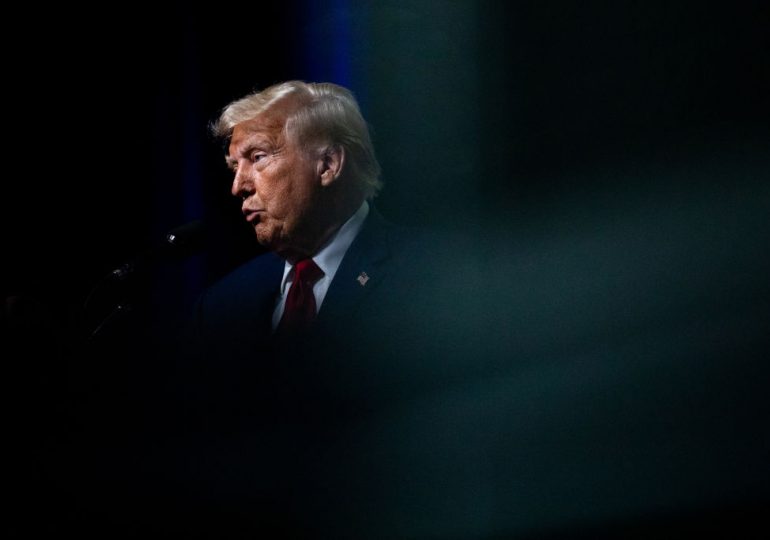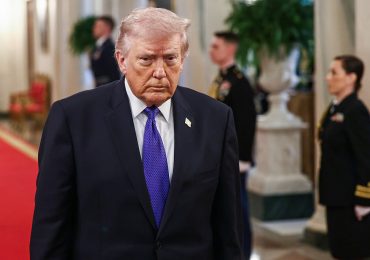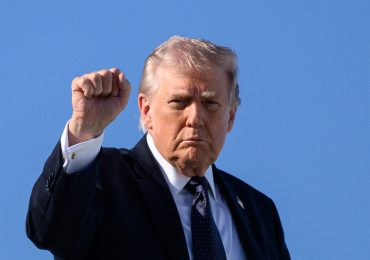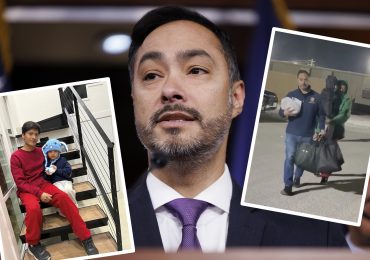Donald Trump’s campaign walked back his apparent endorsement of a referendum that would have expanded abortion access in Florida on Thursday after condemnation from a top pro-life group, underscoring the difficulty the Republican presidential nominee faces navigating a key issue that threatens to alienate him from critical female and moderate voters.
[time-brightcove not-tgx=”true”]
Trump in an interview Thursday with NBC News was asked about a referendum in his home state of Florida that would expand abortion access in the state, which is currently limited to the first six weeks of a pregnancy. He made the comment ahead of a rally in Michigan in which he announced he intended to mandate the federal government or insurance companies cover the entire costs of in vitro fertilization.
“I think the six-week is too short, there has to be more time,” Trump said. Asked how he would vote on the measure, Trump added that he was “going to be voting that we need more than six weeks.”
But Trump’s remarks quickly stirred confusion and anger by evangelical allies critical to his decade-long hold over the Republican Party. Marjorie Dannenfelser, head of the anti-abortion Susan B. Anthony Pro-Life America group, issued a statement saying that voting for the Florida amendment “completely undermines” Trump’s stated opposition to abortions after five months of pregnancy.
Minutes later, Dannenfelser issued a “corrected” statement saying she had spoken with Trump and he assured her he was uncommitted on how he actually planned to vote on the amendment — a position then echoed by his campaign.
“President Trump has not yet said how he will vote on the ballot initiative in Florida, he simply reiterated that he believes six weeks is too short,” Trump spokeswoman Karoline Leavitt said.
The episode underscored the challenge for Trump as he has attempted in recent days to rebrand himself as a champion for reproductive rights, a tacit acknowledgment that his previous efforts to overturn federal abortion protections—and Republican resistance to federal protection for IVF—had become an electoral liability.
Read More: Donald Trump on What His Second Term Would Look Like
Trump nominated three of the justices on the Supreme Court who voted to reverse federal abortion protections in 2022, and his running mate, J.D. Vance, voted against a Senate bill that would have provided federal IVF protections.
IVF treatments became an additional flashpoint after the Alabama Supreme Court ruled in February that frozen embryos could be considered children under state law. The ruling saw clinics in the state suspend treatments until the governor signed a law to protect health-care providers from civil and criminal liability.
“Under the Trump administration, your government will pay for or your insurance company will be mandated to pay for all costs associated with IVF treatment,” Trump said at a campaign event in swing state Michigan on Thursday, touting the measure as “part of our efforts to help working families.”
“We want more babies, to put it very nicely, and for the same reason, we will also allow new parents to deduct major newborn expenses from their taxes,” he added.
Still, Democrats have highlighted the issue as evidence of the type of new laws possible — and to challenge Republican lawmakers to pass legislation to protect IVF at the federal level. That effort has so far been blocked by Republican lawmakers, galvanizing voters already angered by restrictions over abortion in states across the country.
Democrat Kamala Harris’ campaign said voters would not believe Trump’s attempted pivot.
“Trump lies as much if not more than he breathes, but voters aren’t stupid,” said Harris spokesperson Sarafina Chitika. “Because Trump overturned Roe v. Wade, IVF is already under attack and women’s freedoms have been ripped away in states across the country.”
Trump has sought to sideline the issue of reproductive rights saying it is best left to the states, complaining about GOP messaging and even avoiding mentioning abortion in his speech accepting his party’s presidential nomination. Contrary to some in the party, Trump said he supported exceptions in cases of rape, incest, or where the health of the mother was in danger.
But in recent days, he’s also adopted a new tack, trying to position himself as a leader on women’s reproductive rights by saying in a post on his Truth Social platform that his administration would be “great for women and their reproductive rights.” Vance has also said the former president would “absolutely” veto any federal abortion ban passed by Congress.
That has managed to outrage both sides, with Democrats calling his views insincere and evangelical leaders voicing concerns that the former president is abandoning them.
‘Economic nightmare’
Trump’s NBC interview came before a speech in Michigan focused on the economy, where he assailed Harris over high inflation and the administration’s electric vehicle transition that have spurred anxiety among rank-and-file union members in the battleground state.
“I’m here today with a simple message for the American auto worker and for the American worker, your long economic nightmare will very soon be over,” Trump said at Alro Steel Corp.’s metals distribution facility near Lansing, the state’s capital.
Trump said Biden and Harris had “made middle class life unaffordable and unlivable. And I’m going to make America affordable again,” touching on one of his Democratic rival’s biggest political vulnerabilities, high prices hitting households hard. He also assailed Biden’s EV push, which has rank-and-file union members worried about lower wages and lost jobs.
Trump and Harris have sparred over who would be a better steward for the economy with the Democrat proposing tax credits, aid for first-time home buyers and programs to curb cost increases in rent and groceries. Earlier Thursday, the vice president announced plans to unveil a new tax credit to help new small businesses. Trump has vowed to renew expiring tax cuts and hit other nations with tariffs.
Trump’s event—days before Labor Day—highlighted the importance of the economy in November’s election and how the two campaigns are fighting to court working-class voters in the Blue Wall states of Michigan, Pennsylvania and Wisconsin.
Trump spoke in Eaton County, a swing county that includes a portion of Lansing and voted twice for former President Barack Obama and twice for Trump. A Bloomberg News/Morning Consult poll released Thursday found Harris leading Trump by three percentage points in Michigan.
Read More: How to Read Political Polls Like a Pro
Michigan, where a significant portion of the population is employed in jobs relating to the auto industry, ranks 45th among US states with a 1.6% drop in manufacturing jobs during the past year, and it was one of 10 states with an unemployment rate of 4.4% or higher in July. The 5.2% increase in real GDP per capita since 2019 in Michigan is lower than the US but higher than the swing states of Pennsylvania and Wisconsin, federal data show.
The Trump campaign has emphasized high-profile job cuts in Michigan, including Stellantis NV, the owner of the Jeep and Ram brands, announcing plans to eliminate as many as 2,450 hourly positions at a pickup truck factory near Detroit as it seeks to trim bloated inventories on US dealer lots.
Leave a comment








